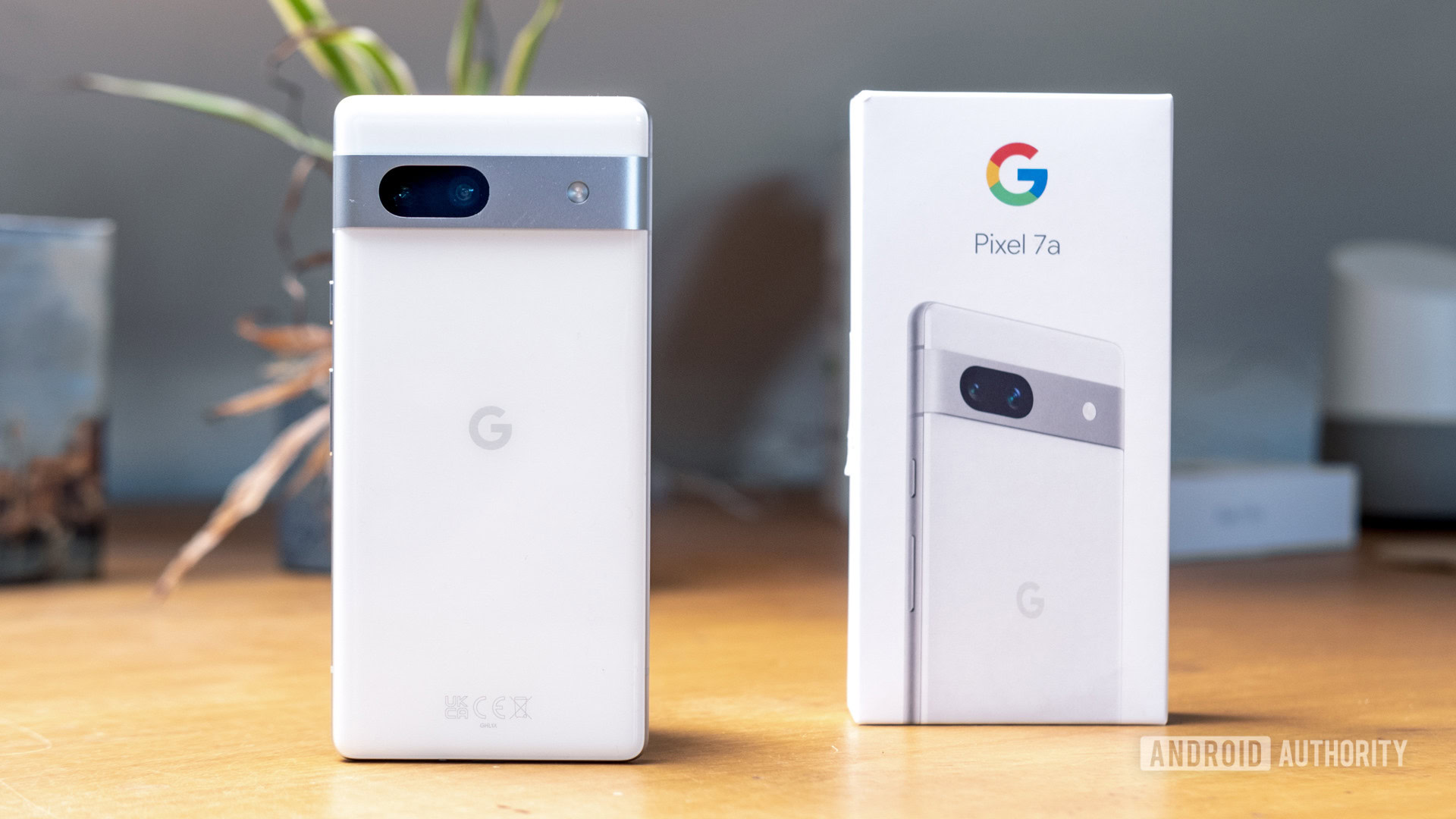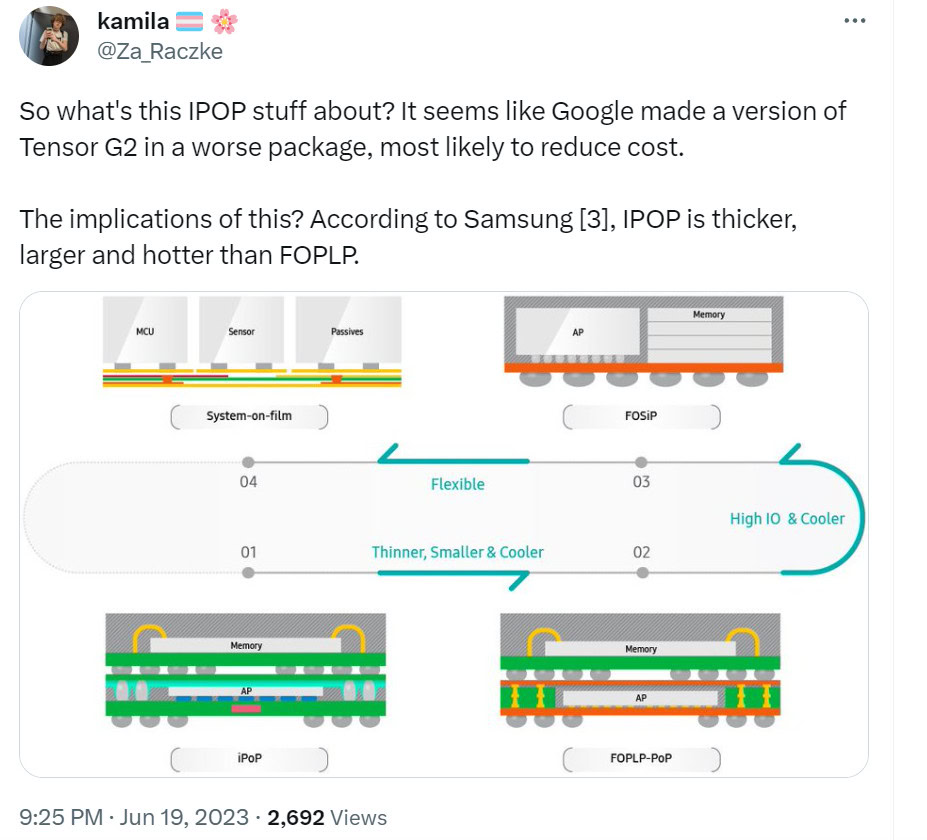Affiliate links on Android Authority may earn us a commission. Learn more.
The Pixel 7a might be using a slightly inferior Tensor G2 processor
Published onJune 20, 2023

- A noted leaker has found that the Pixel 7a’s Tensor G2 chip uses different packaging.
- This was ostensibly done for price-related reasons and could make for a hotter chipset.
- Our own benchmark testing showed that the Pixel 7a was mostly similar to the Pixel 7.
The Google Pixel 7a might be a mid-ranger, but it uses the same Tensor G2 processor as the flagship Pixel 7 series. Now, a trusted leaker has discovered that the Pixel 7a chip might differ from the standard Tensor G2.
Twitter tipster Kamila Wojciechowska has discovered that the Pixel 7a’s Tensor G2 processor differs from the Pixel 7’s chipset when it comes to the packaging. More specifically, the Pixel 7a chip uses so-called IPOP packaging versus the standard Tensor G2’s FOPLP-PoP packaging. So what does that actually mean?
Well, Wojciechowska notes that IPOP packaging is theoretically thicker, larger, and hotter than FOPLP-PoP packaging, citing Samsung’s own website.
It’s unclear if this difference in packaging has real-world consequences for the Pixel 7a, Wojciechowska asserts. For what it’s worth, our own testing showed that the mid-range Pixel was roughly on par with the Pixel 7 series in most areas. However, the Pixel 7a lagged behind the standard model when it came to sustained graphical performance. This disparity could be due to the packaging, but it could also theoretically be attributed to the phone’s cooling measures and overall design.
Do you care if the Pixel 7a chip uses cheaper packaging?
Nevertheless, you’re still getting a powerful mid-range smartphone if you opt for the Pixel 7a. But recent Android Authority testing also showed it’s not quite the number one pick for wallet-conscious mobile gamers.
We’ve asked Google representatives about this apparent disparity and will update the article if/when the company gets back to us with an answer.
